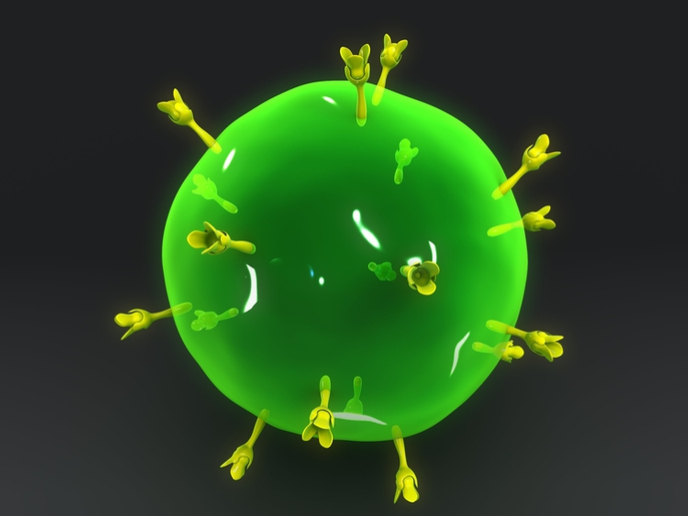Scientists map key genes regulating immune cells
What makes us recover from a virus or other infection more easily the second time round? The answer is our body’s adaptive immunity. When we’re first infected, the adaptive immune system recognises the bacterium or virus attacking our body and eliminates the threat. At the same time, it learns about it. The next time we’re infected by this pathogen, the system remembers and responds more effectively. A central role in this process is played by immune cells called T helper (Th) cells. These cells help to activate other cells that secrete antibodies to destroy disease-causing microorganisms in our body. They also activate cytotoxic cells that kill infected target cells. During a body’s immune response, Th cells transform into different subtypes with distinct key functions. However, despite the different Th subtypes’ importance, they haven’t all been systematically examined. A new study(opens in new window) published in the journal ‘Cell’ is helping to fill this knowledge gap by focusing on the Th2 subtype, whose important regulatory role is linked to the body’s immune response to infections and tumours. Supported by the EU-funded projects ENLIGHT-TEN, ThDEFINE, INNODIA and MRG-GRammar, the study presents a new retroviral CRISPR(opens in new window) genome editing library created to explore how mouse T cells are regulated. First-ever genome-wide analysis of Th cells Using the library, the researchers were able to identify how Th2 cells are activated and how they differentiate in order to be able to help eliminate a specific infection. They achieved this by switching off each of the 20 000 genes in mouse Th2 cells and studying how this affected their activation or differentiation. “This is the first ever unbiased genome-wide analysis of the activation and differentiation of T helper cells, helping us understand which signals are involved in immune system regulation,” said joint first author Dr Johan Henriksson of MRG-GRammar project partner Karolinska Institute, Sweden, in a news release(opens in new window) published on the ‘Science Daily’ website. “Our study shows that many different types of genes impact both activation and differentiation of these immune cells, indicating how closely linked those two processes are.” The study showed that genes of all functional categories affect cell activation and differentiation. It also revealed that the transcription factor seems to play a particularly important role in Th2 gene regulation. The researchers’ creation of an atlas of the most important genes involved in regulating Th cell immune response will help to deepen scientists’ understanding of the immune system. “This openly available resource […] could lead to finding new immune-activating therapeutics against tumours and infections, or for damping down the immune response to relieve allergies in the future,” said co-author Dr Sarah Teichmann in the same news release. ENLIGHT-TEN (European Network linking informatics and genomics of helper T cells) has focused on providing cross-disciplinary training in T cell immunology and Big Data analysis. ThDEFINE (Re(defining) CD4+ T Cell Identities One Cell at a Time) is combining single-cell RNA sequencing, bioinformatics and genetic engineering to dissect CD4+ T cell states. Through its research, INNODIA (Translational approaches to disease modifying therapy of type 1 diabetes: an innovative approach towards understanding and arresting type 1 diabetes.) aims to accelerate understanding of type 1 diabetes. MRG-GRammar (Massive Reverse Genomics to Decipher Gene Regulatory Grammar), which sought to advance technologies and knowledge of treatments based on individual natural genomic variations, ended in 2018. For more information, please see: ENLIGHT-TEN project website(opens in new window) MRG-GRammar project website(opens in new window)
Countries
Belgium, Germany, Israel, United Kingdom



